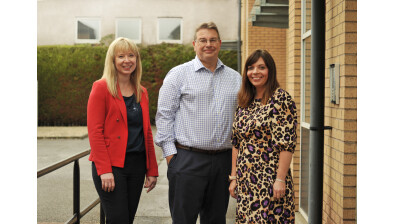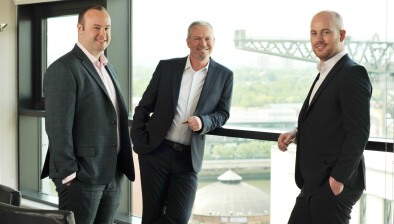French Duncan: Scottish professional services staff want hybrid working model

Graeme Finnie
Scottish professional services staff have been overwhelmingly positive in response to working remotely and see a ‘hybrid’ model as the optimum working arrangement in the future, according to research of its staff by Scottish business consultancy firm French Duncan.
French Duncan introduced a new flexible working strategy in August 2020 amidst the global pandemic, in terms of place of work and flexible hours.
Results of the recent survey show this pioneering approach has been successful, with 97% of staff responding positively on how they have coped with remote working, and how they perceive their working lives being managed moving forward.
The survey amongst French Duncan’s 200 employees revealed that only 0.5% felt full-time office working was their optimum working arrangement. A hybrid model of ‘three days at home and two in the office’ was the most desired (39%), followed by ‘two days at home and three in the office’ (20%).
The most popular day of the week for home working was Friday (34%), while staff preferred working in the office on a Tuesday (28%). However, a larger proportion (50%) of staff stated they were ‘flexible’ when it came to which days were preferred to work at home or in the office.
The survey revealed that being ‘able to focus’ (60%) was the part of staffs’ role performed better at home than in the office, followed by performing ‘more complex work’ (13%).
The survey also showed that feelings were broadly positive on how staff felt they had coped with remote working. When asked, 52% of respondents said they were coping ‘Great’, while 48% answered ‘Okay’ and only 3% responded ‘Not Great’.
Graeme Finnie, managing partner at French Duncan, said: “We were quick off the mark launching new flexible ways of working back in the summer of last year, and the purpose of the survey was to gauge how our staff were feeling about these changes and how they wanted to manage their working lives moving forward. The past 12 months have seen daily working lives change and we wanted to make sure that we provide the best possible working environments and opportunities for our staff as we move forward.
“What’s clear from the results is that a hybrid model of staff working locations is necessary – that there are numerous benefits to most in being able to work both remotely and in the office. We introduced a hybrid working model last year to support staff needs during the pandemic and are continuing to set out plans for a new, permanent world of working at French Duncan.”
One member of staff who favours a flexible approach is Iain Littler, administrator, restructuring & debt recovery, who commented: “The main positives of flexible working are that it lets you arrange your week in a way the suits your workload, it gives you more scope to schedule personal appointments due to the ability to start later or finish earlier if required, and potentially saving the need to take time off.”
Aside from remote working, the other flexible working arrangements most popular amongst staff were taking more flexible lunch breaks (39%), greater flexibility around core working hours (28%), and the opportunity to work compressed hours (22%).
Two areas highlighted as being better performed from an office base were ‘team communication’ and ‘training’.








